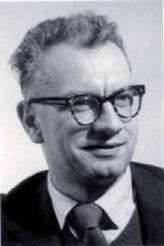Roman Teisseyre (1929 - 2022)

With deep sadness we inform that Professor Roman Teisseyre, one of the pioneers of modern geophysics, passed away on November 21, 2022. He made essential contributions to the development of earthquake theory and seismological measurement methods. His broad field of interest concerned seismology and fracture theory, including electric, magnetic, and rotational effects in seismic processes. Based on the dislocation approach, he developed the theory of earthquake premonitory and fracture processes.
The scientific career of Professor Teisseyre has been mainly associated with the Institute of Geophysics, Polish Academy of Sciences; he organized and led the modern center of theoretical earthquake research, and was the Institute's Director in 1970 – 1972 and Deputy Director in 1960 – 1970 and 1973 – 2001. He has published over 250 papers and authored, co-authored, or edited a number of multi-volume, unique monographs on the physics and evolution of the Earth's interior.
His achievements were widely recognized both nationally and internationally: he was nominated Member of the Polish Academy of Sciences in 1969, a Foreign Member of the Finnish Academy of Science and Literature in 1975, and received the Honoris Causa Doctorate from the AGH University of Science and Technology in Cracow. Many of his former Ph.D. students are now world-renown scholars.
He was strongly involved in the activity of the European Seismological Commission, being its Vice-president in 1970 – 1976 and then the President until 1978. He was a UNESCO Expert at the International Institute of Seismology and Earthquake Engineering, Tokyo, Japan (1965 – 1966), and held visiting positions at the University of Trieste, Italy (1979 – 1980), University of Strasbourg, France (1974), and Hokkaido University, Japan (1999). He was head of the Polish Geophysical Expedition to Vietnam during the International Geophysical year 1957 – 1960, and attended the Polar Expeditions to Spitsbergen in the years 1964, 1970, and 2000, initiating and realizing the pioneering project of icequake observations.
Everybody who had the occasion to meet Roman was impressed by his charm, energy, great sense of humor, and willingness to help. Those who had a chance to work with him admired his deep knowledge and true understanding of the variety of physical processes acting on and within our Earth.
Anna Dziembowska, Polish Academy of Sciences
